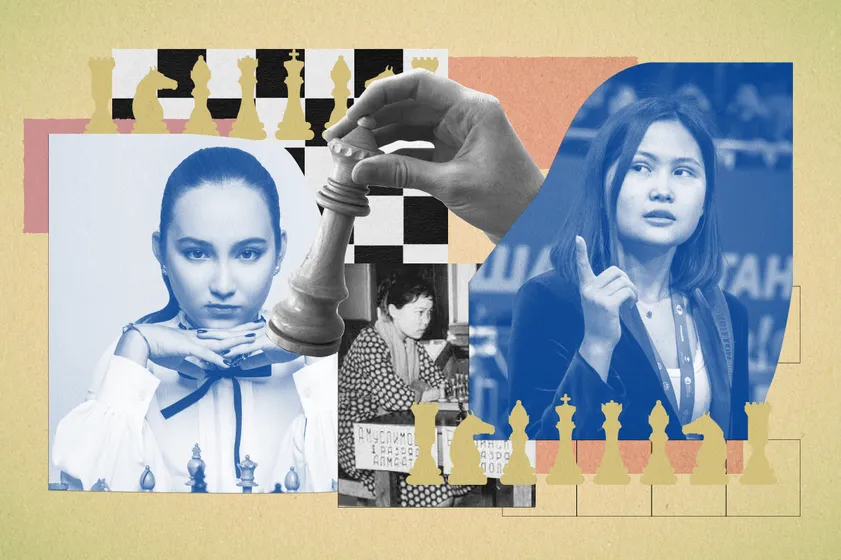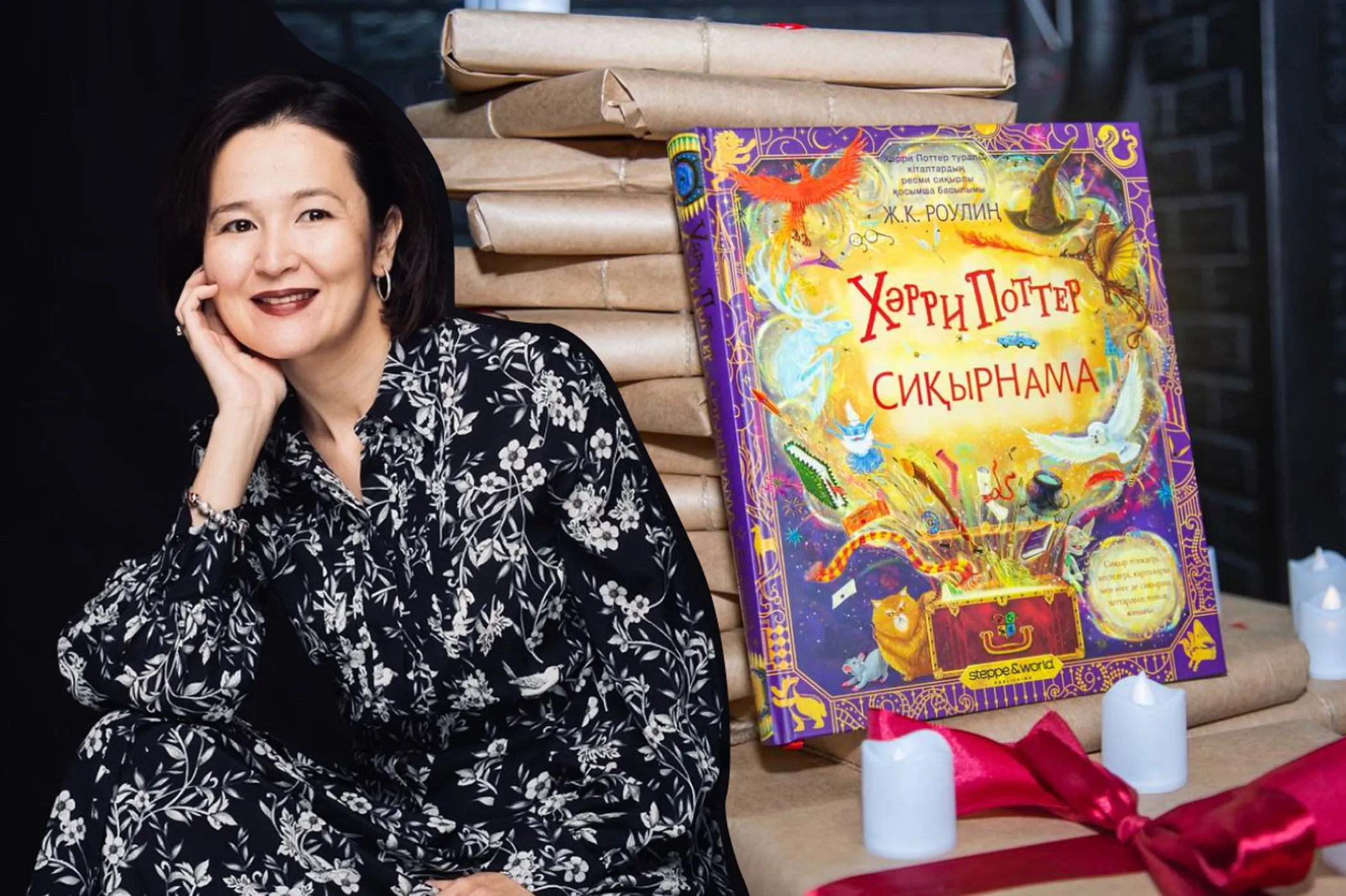There’s an air of distinctiveness surrounding chess in our country. While the global chess scene is dominated by men across all ages and levels of play, Kazakh chess seems to look up more to the names of Hou Yifan, Maia Chiburdanidze, and Judith Polgar, instead of the likes of Bobby Fischer or Magnus Carlsen. In fact, for the last couple of years, the buzz around chess in Kazakhstan has been all about our female players, and for a good reason. Just this past September they were crowned as vice-champions of the World Women's Team Championship 2023 in the Polish Bydgoszcz, and—just to acknowledge this fact—this was our best performance ever.
QazMonitor dug into this phenomenon to find out the moving parts that make women's chess work in our country.
The inspiration
It all dates back to 1962. That year, the prestigious USSR Women's Chess Championship added a new name to the list. Aida Muslimova. She was the first Kazakh woman in one of the most competitive chess scenes at the time, the Soviet chess school, and all this while being basically the sole Kazakh person to compete professionally.
Through word of mouth, news of her results in the Championship across the years — the inaugural one in 1962, as well as in 1965, 1966, and 1969 — began to stir our republic with a buzz of excitement. Soon, female talent sought to follow in Muslimova’s footsteps, and it didn't stop there; it wasn’t only young women who were inspired by her. As her contemporary Tolegen Nukin recalls, witnessing how Muslimova competed alongside the best of the best fueled his desire as a young Kazakh man to prove himself and stand beside his renowned peer. Eventually, he would go on to become an International Master—the second-highest tier after Grandmaster among chess players recognized by the International Chess Federation.
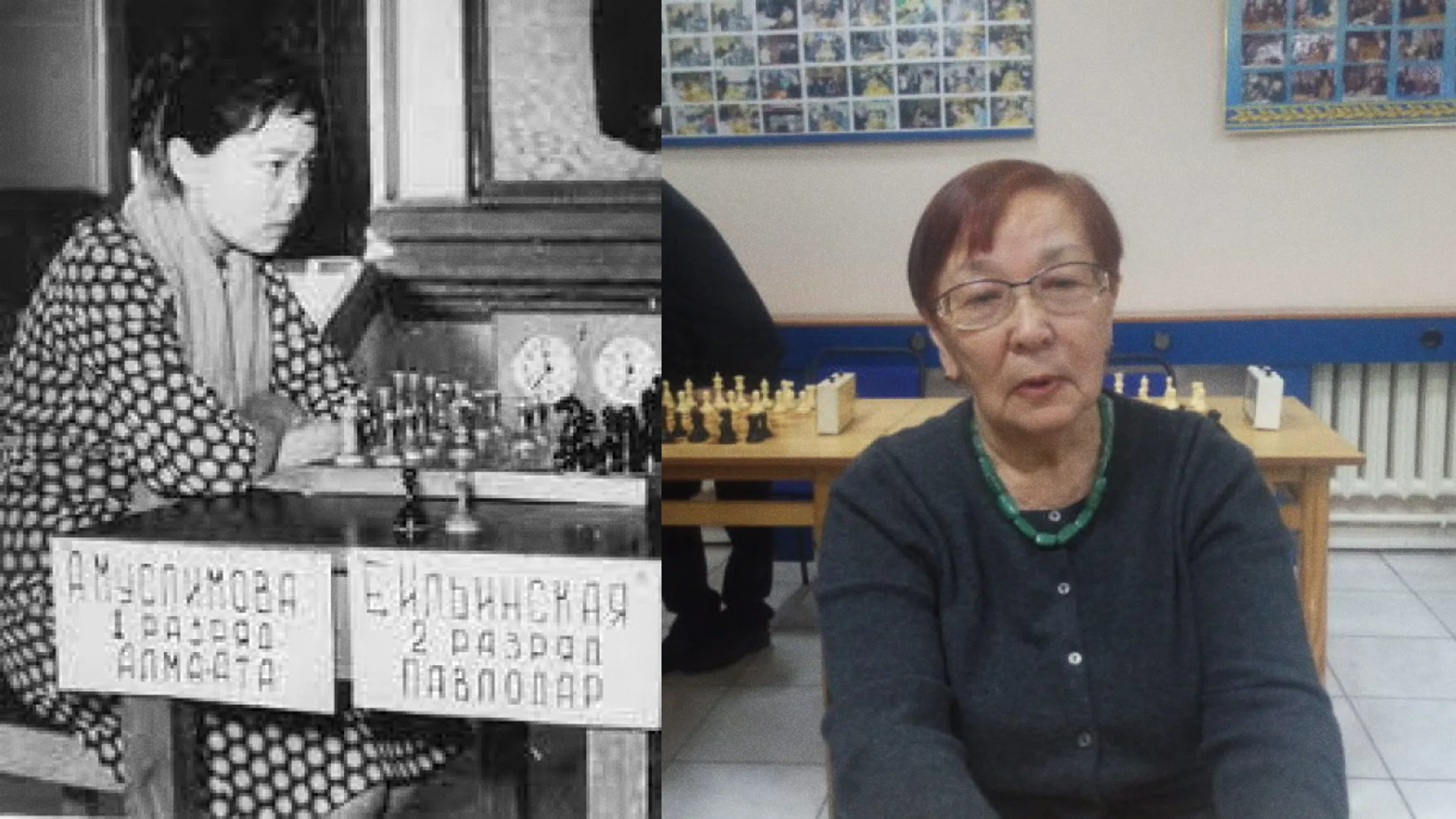
In the following decade, much like Nukin, the youth would channel that excitement and turn it into something more. Murtas Kazhgaleyev, one of the strongest chess players in modern Kazakhstan with a Grandmaster title to his name, reflects that this period serves as a prime example of the 'Gaprindashvili effect' in action.
The story here is that the same year Muslimova made her debut in the Soviet premier league, Nona Gaprindashvili from Georgia took her country to the global stage and became women's world chess champion. Her achievements inspired many Georgian women to take up chess, setting up one of the strongest women’s chess scenes in the world. The reigning champion herself was succeeded in 1978 by another Georgian player, Maia Chiburdanidze, who retained that title all the way until 1991.
So, there's much to be said about the power of inspiration. In the context of Kazakh chess, during the middle to late 80s, the domestic scene hit that critical mass. A breakthrough point when women’s chess in the country were able to put more on the board. Not a lone warrior but a whole squad behind them. Culminating in 1988, Gulnara Sachs, Elvira Berend, Tamara Klink, and Fliura Khassanova were among the eighteen players participating in the 48th USSR Women's Chess Championship.
The foundation
To compete at such a high level, sufficient funding was imperative, and it was all there at the time. Our women’s team was able to attract accomplished players to coach them, and one notable name that stands out is Nukhim Rashkovsky. He relocated to Almaty (then Alma-Ata) to take on this coaching role, and by the time the 30th Chess Olympiad in 1992 rolled around, our team had achieved its best form. Facing such goliaths as China, Georgia, Russia, and Ukraine, our team emerged 8th out of 62 teams, eking out just a single-point win over the US in tie-breaks.
With how chess is and the scarcity of female Grandmasters, the practice of inviting male GMs to coach the national team proved effective. Interestingly, during roughly the same period, the Chinese women’s team pulled ahead, and as the current No.1 Hou Yifan shared with Chess.com, there was a widespread tradition at the time for accomplished male players to coach the female team. Although it slowly faded away by the 2000s, a significant portion of top female players are Chinese. The foundation was laid.
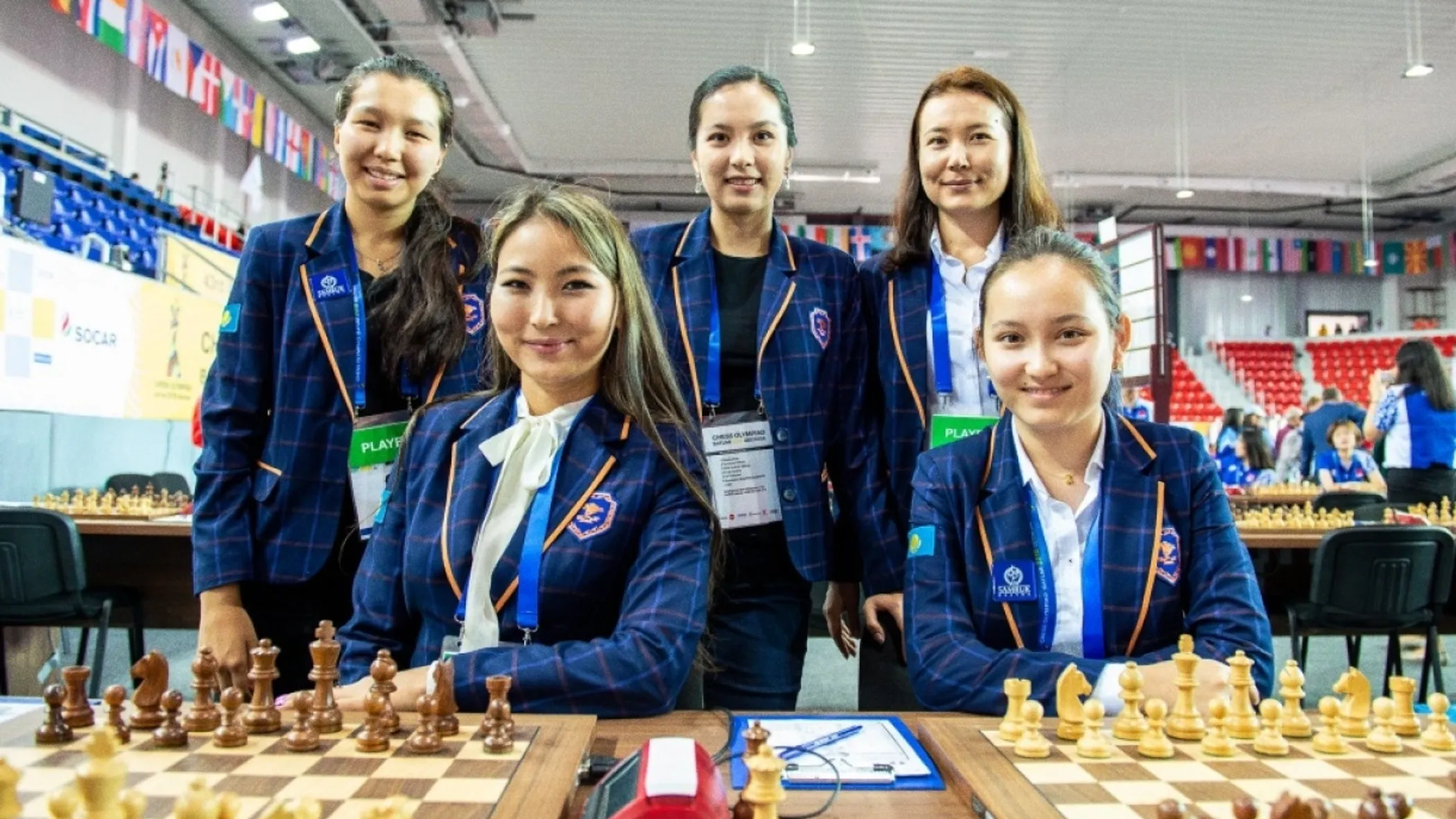
Unfortunately, queue in the turbulent '90s when all post-Soviet republics, including Kazakhstan, grappled on all fronts with the dissolution of the Union, and that financial backing collapsed. Our women’s team essentially disbanded as most players started living abroad, and those who remained in the country struggled to stay afloat in these new and difficult times.
Time passed, and the Y2K turn in Kazakhstan brought not the prophesied software scare but a new development. South Kazakhstan was always among the top regions of the nation, but during the 2000s, the Shymkent scene carried the entire country. Trained under Grigoriy Kim, two players, Gulmira Dauletova and Madina Davletbayeva, achieved rankings above 2300, granting them the title of Women Grandmasters, while Guliskhan Nakhbayeva attained the rank of International Master. The foundation was still standing.
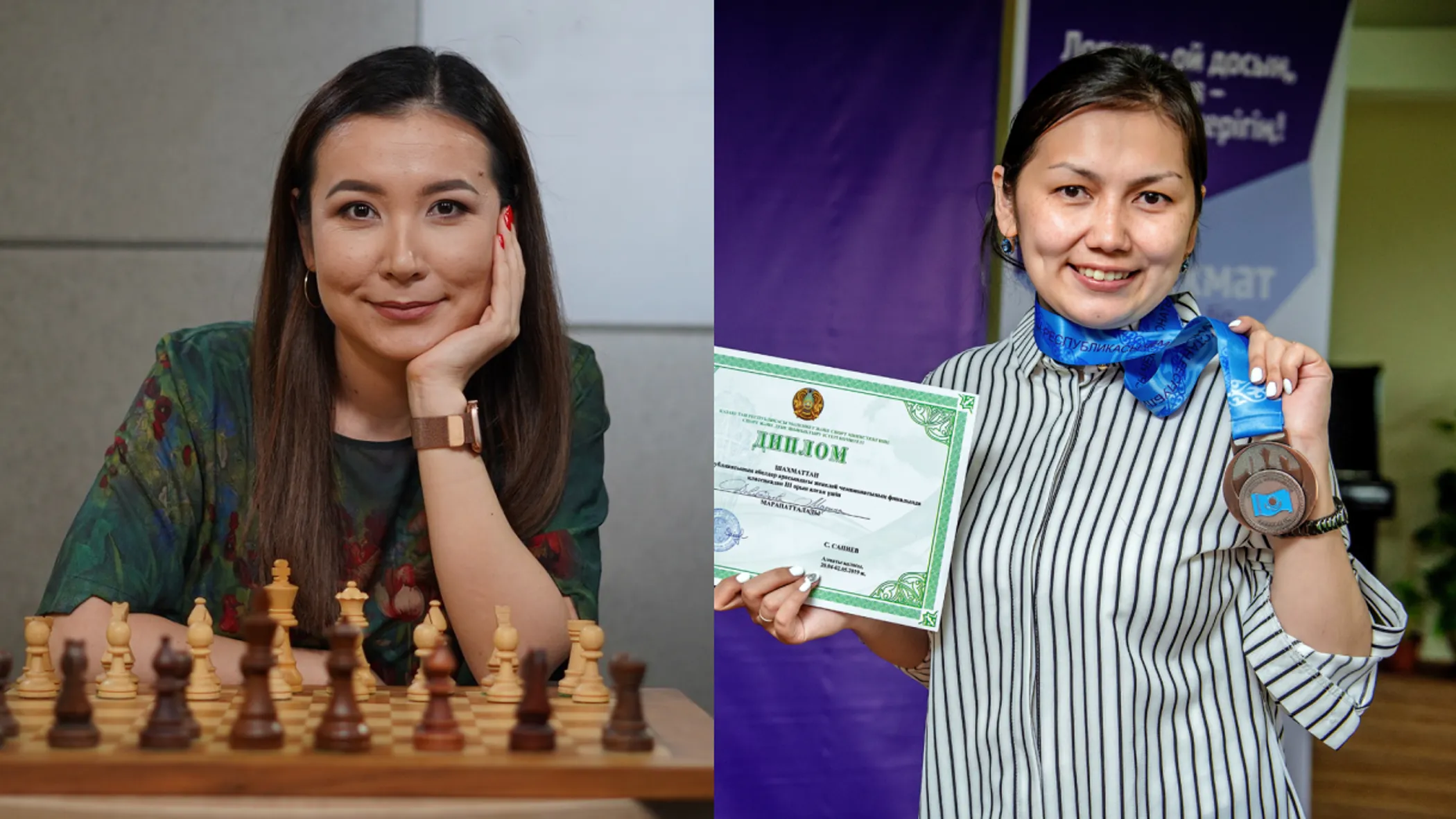
The publicity
Women’s chess in Kazakhstan has gone a long way from being in the shadow of the larger Soviet scenes in Moscow, Leningrad, and Georgia in its formative years, and over time it has developed into something that can stand on its own merits. A defining moment in this transformation was the 41st Chess Olympiad in 2014. There, our team secured 6th place among 136 teams, only trailing behind the world’s finest.
You can actually see that training montage of a ten-year-long journey. From our first participation in the World Women’s Team Championship to the last one this past September. In 2013, we got to 7th place, and with each subsequent participation, we would improve our result, moving one rank up year by year. The last leg of this journey—at least for now—took place under the picturesque red roofs of Bydgoszcz in 2023, where the women’s team achieved its highest result yet: 2nd place on the global chess stage, trailing only behind Georgia
Plus, there’s a reason to believe that our training montage arc is not over yet. There’s more to come.
Here, it feels like we’re retreading the same ground because we once again start with a name. Or three, to be precise. Any discussion about contemporary Kazakh chess, regardless of gender, would be remiss without mentioning Bibisara Assaubayeva, Dinara Saduakassova, and Zhansaya Abdumalik. These three athletes have not only gained international recognition but, more importantly, have achieved local fame. Here, in Kazakhstan, they are considered sports celebrities, and chess itself is increasingly recognized as a viable professional path in our society, attracting a growing number of aspiring young women.
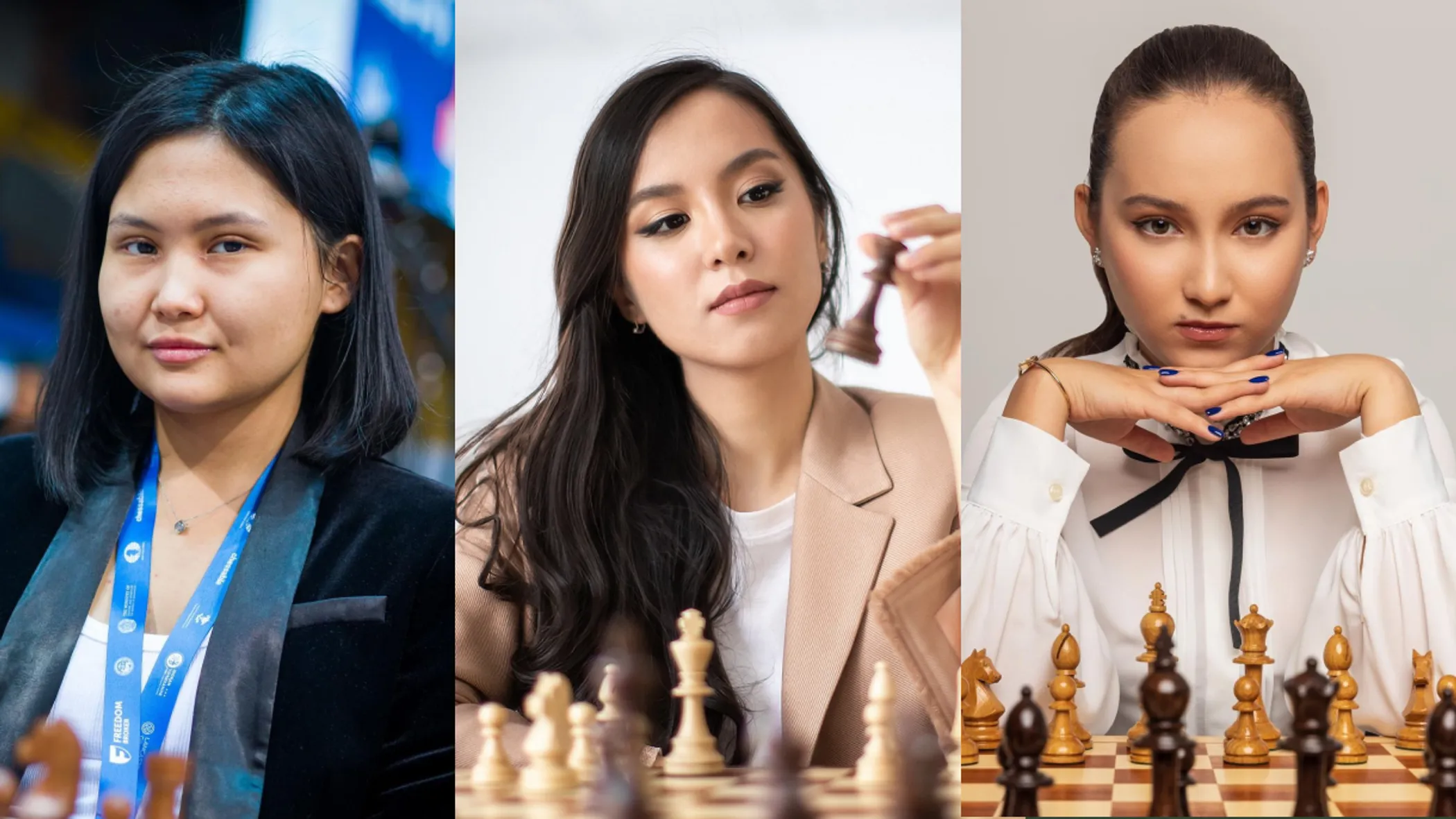
As a matter of fact, seven Kazakh junior athletes made it to the top 100 of FIDE's rankings (as of November 2023), surpassed only by the US with nine American players on the list. And to truly illustrate the point of this entire article, Assaubayeva currently ranks first in that same ranking. Our entire team at the World Women’s Team Championship 2023 averaged 18.5 years, comprising Alua Nurmanova, Amina Kairbekova, Assel Serikbay, Bibisara Assaubayeva, Meruert Kamalidenova, and Xeniya Balabayeva.
Women’s chess in Kazakhstan has a lot going for it right now—its history, the funding that is once again where it needs to be, and given the talks of including chess into the national school curriculum, there’s a growing level of acceptance among parents for this pursuit. It may not be long before Abdumalik relinquishes her title as the sole Kazakh woman holding a Grandmaster title.
